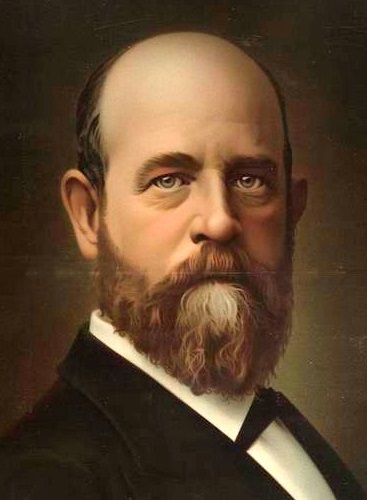 Part
One Labor in Pennsylvania, Forward
|
Saving Communities
|
||||||
Home |
Site Map |
Index
|
New Pages |
Contacts |
 |
Labor in PennsylvaniaA four part account by Henry George, originally published in The North American Review in 1886. Forward to the Online Edition,
|
This four-part report paints a detailed and poignant picture of the plight of working people in Pennsylvania's largest industry in the 1880s, coal mining. It is valuable, not only to those who want a contemporary account of mining conditions in the 1880s, but to those who want to understand the author's most controversial proposals in the context of conditions he addressed.
Henry George was at the height of his fame and political influence, ranked as the third most famous person in America (behind Mark Twain and Thomas Edison), when The North American Review commissioned him to write this report. He had just run for mayor of New York City as the candidate of the United Labor Party on a controversial anti-monopoly platform, the centerpiece of which had been to break up land monopoly with a tax on the value of privately held land. His main work, Progress and Poverty, had become an international best-seller and was being translated into other languages, and Social Problems was rapidly gaining in popularity as well.
Although it is a highly editorialized description by a champion of labor causes, it is nonetheless a description, first and foremost, of the condition of the miners and the dynamics between miners, owners and the government.
Part one is a general overview of mining in Pennsylvania, from the sheer bounty of its resources and the paternalistic face of its owners when seeking protection from imports to the miserable conditions of the miners, with attention to company housing, company stores and short-weighing practices. Because it was the introductory installment, it also touches on topics that are further developed in subsequent installments.
Part two focuses on the legal status of miners, from laws intended to protect them and how those laws had been frustrated by circumstances and by the courts, to special powers granted to mine owners, such as The Coal and Iron Police, private police forces vested with extraordinary powers. It details the brutal degradation of children and the use of "conspiracy laws" to break strikes and punish miners.
Part three describes how the coal operators used "docile" eastern European "Hun" workers to drive down wages of other immigrant workers, the resulting friction between the older immigrants and the newer, and a remarkable strike in which the "Huns" acquitted themselves with extraordinary courage. It then exposes how the arguments of conservative protectionists against the "pauper labor of Europe" to block the importation of British coal are betrayed by the fact that conditions of miners in Pennsylvania had actually become worse than those of miners in Britain.
Part four describes one of the world's richest known iron-ore mines of the time, how it came to be the property of its owners, how the benefits of "protection" increased royalties rather than wages, how wages varied more within Pennsylvania than between Pennsylvania and other countries, and how terribly regressive Pennsylvania's Occupational Assessment Tax was. (That local tax only existed in the anthracite mining regions, and persisted until very recent times.)
Modern readers of George are more familiar with his treatises advocating economic and social reform. However, George first established himself as a California journalist and brought attention to his most famous treatise, Progress and Poverty, as a correspondent in Ireland for The Irish World, an ethnic newspaper based in New York City.
Those who have only read George's treatises cannot understand how his influence had become so great as to launch the Progressive Movement. It was his journalistic writings that first captured the attention of large numbers of people and established his reputation as a champion of working people. Only after that did people take an interest in his deeper, more abstract, and therefore more difficult, analytic works.
Although there is journalism in his advocacy (and, as you will see, advocacy in his journalism), his journalistic works contain striking observations of the conditions he seeks to redress, and only makes allusions to his theoretical proposals and their economic underpinnings. While philosophers, advocates, academics and "true believers" are more interested in analytic treatises, most people then and now want their proposals to be anchored in the context of what is going on.
It should be noted that, as unions became stronger, workers in protected industries did indeed get shares of the monopoly premiums, and that the highest-paid workers were those whose employers enjoyed monopoly advantages. Thus, Henry George's observations no longer applied to those workers. However, as organized labor has been declining since the 1950s, the scenario arises once again that protecting monopoly industries will only give them more leverage against their own employees.
Dan Sullivan
Continue to "Labor in Pennsylvania, Part One"
Comments:
Saving Communities
420 29th Street
McKeesport, PA 15132
United States
412.OUR.LAND
412.687.5263